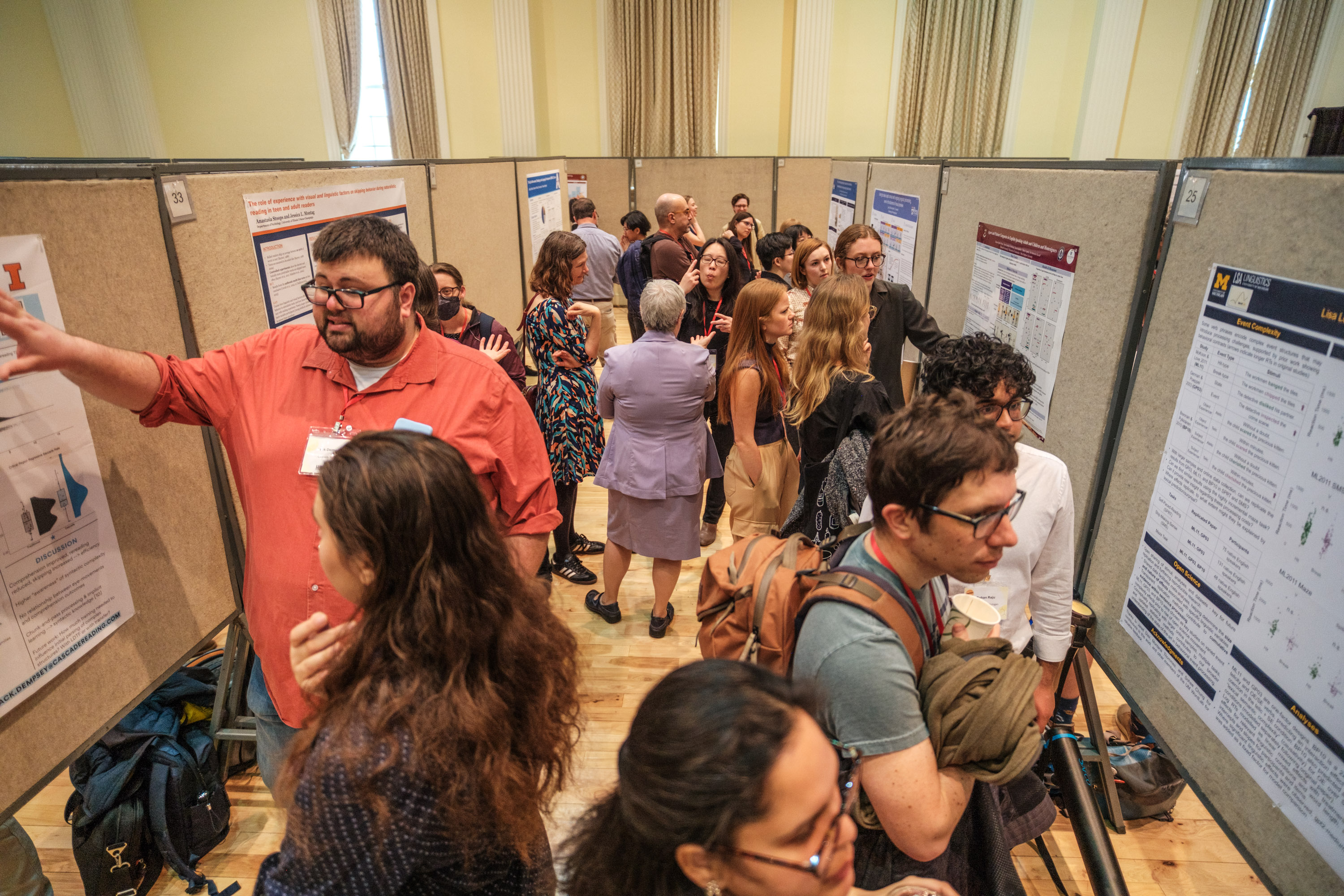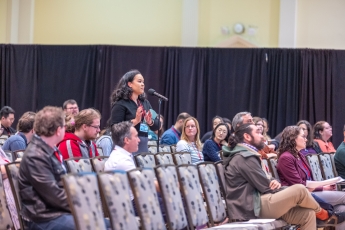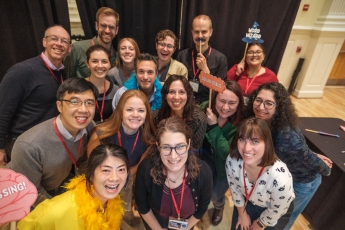Innovating Language Science: Highlights from HSP 2025
March 31, 2025

Over 400 scientists gathered from across the world to showcase cutting-edge research in human sentence processing.
The University of Maryland, College Park hosted the 38th Annual Conference on Human Sentence Processing (HSP 2025) on March 27th through 29th, in collaboration with Gallaudet University and Howard University. This conference is the premier event in North America for scientists interested in how humans comprehend and produce language. Over 400 scientists gathered from across the world to showcase cutting-edge research on relations between language processing and artificial intelligence, cognitive abilities, prosody, language acquisition, language production, field psycholinguistics, and neural processing.
This year’s conference featured a special session entitled "Connecting Minds, Building Bridges: Community Outreach in Language Processing Research," which explored how psycholinguistics research can align with the needs of non-academic communities, in order to foster collaboration with public partners and generate impactful outcomes that yield mutual benefit.
Five invited speakers provided a window into what community-engaged research looks like across wide-ranging domains. Dr. Stefanie Kuchinsky of Walter Reed National Military Medical Center underscored the importance of understanding the impacts of listening effort and multilingualism when assessing hearing abilities in members of the armed services. Dr. Andrew Begel from Carnegie Mellon University highlighted how psycholinguistic notions of pragmatics and noisy-channel communication are central to understanding communication gaps between autistic and non-autistic software engineers in a teamwork setting. Dr. Rain Bosworth from the Rochester Institute of Technology described ways in which the Deaf and Hard-of-Hearing community have been excluded from society and research, and stressed the need for more collaborative endeavors that engage with the nuances of sign languages.
This session also featured two experts from the University of Maryland. Dr. Charlotte Vaughn showcased the Language Science Station at the Planet Word Museum, which promotes public understanding of science through participation in psycholinguistic research in a language-focused museum. Dr. Philip Resnik applied advancements in models of predictive coding to understanding clinical impairments like schizophrenia and political framing on social media.
HSP 2025 sparked important conversations about the future of the field, stressing the need for collaboration across different sectors. With wide-ranging talks and posters, hands-on demo sessions, and thoughtful discussions about science in current times, this conference showcases the centrality of language in understanding human cognition, societal interactions, and technological advancements.
The success of HSP 2025 was made possible through the generous support of several key sponsors and supporters. Special recognition goes to the National Science Foundation, the University of Maryland College of Behavioral and Social Sciences, SR Research EyeLink, Finding Five, the University of Maryland College of Arts and Humanities, the Maryland Language Science Center, the University of Maryland Department of Linguistics, and Department of Hearing and Speech Sciences for their invaluable contributions. These organizations' commitment and collaboration were essential in making HSP 2025 a memorable and impactful event.



